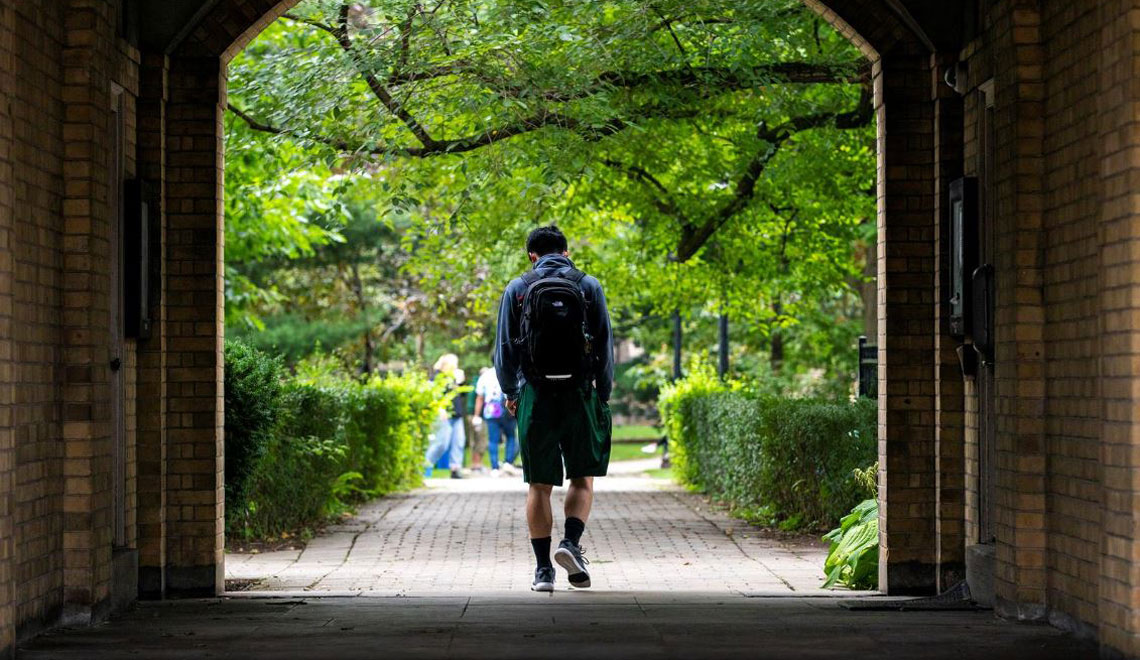Canada has granted Student Direct Stream or SDS privileges to 14 countries, including India, Pakistan, Morocco and Senegal.
Under the SDS, Immigration, Refugee and Citizenship Canada (IRCC) offers a fast-tracking process to grant study permits to students from those countries that allow foreign nationals to study at designated learning institutions (DLIs) in Canada.
IRCC is Canada’s government agency that facilitates the immigration and visa process for the applicants, provides protection to refugees, and offers programming to help newcomers settle in Canada.
Although a neighbourly country of both India and Pakistan, Bangladesh did not make it to the SDS list that provides entitlements to an expedited pathway to study permit (synonymous with student visa) for the students coming to Canada for higher education.
The IRCC recently added several Caribbean and South American countries such as Antigua and Barbuda, Brazil, Colombia, Costa Rica, Peru, Saint Vincent, the Grenadines, and Trinidad and Tobago. As a result, students from these countries now qualify for an expedited study permit under this trendy scheme. See the complete list of SDS countries here.
According to IRCC, it takes 20 calendar days to process most applications from the SDS-approved countries if the applications do not warrant further scrutiny. However, study permit applications for Bangladeshi students take several months to process in Singapore.
There is every likelihood that Canada will expand its SDS list to include more countries. Bangladesh can lobby to get the privilege as the number of students from Bangladesh is on the rise year over year.
Canada witnessed a 135% growth of international students between 2010 and 2020. Around 622,000 international students are studying in Canada at all levels as of 2021
See from where international students are coming to Canada:
Source: CBIE
IRCC data shows a steady increase in study permits for Bangladeshi nationals. Except for 2020, study permit applications from Bangladeshi students rose by nearly 400% in six years from 2015 to 2021.
In 2015, 1,365 study permits were issued to Bangladeshi students, which jumped to 6,635 in 2022. However, due to the pandemic, it dropped in 2020.
In January 2022, a total of 575 study permits were granted to Bangladeshi nationals, according to data available in monthly IRCC updates.
A report from IRCC says that Canada ranks 4th as the most preferred education destination for students worldwide as per the study permit applications.
Before the pandemic in 2019, the study permits issued to Bangladeshi applicants were around the 5,000 mark, less than one percent of the total permits issued by the IRCC globally.
With a population of one-fourth of Bangladesh but included in the SDS stream, Brazil had over 10,000 permits approved in the same year. So, Bangladesh has a vast potential to grow its share if it can obtain the SDS privilege.
Given an opportunity for an expedited visa process, international students from Bangladesh should be able to plan their studies in a relatively shorter time frame and with greater certainty.
Moreover, the steady rise of permits for Bangladesh students shows that an increasing number of students are planning to travel to Canada for their higher studies, and the SDS will only expedite the process.
A student needs to provide the four most essential documents for a study permit application – an offer letter from a DLI (Designated Learning Institute), financial solvency, English proficiency (IELTS, TOFEL or CELPIP score) and the Statement of Purpose. However, there are other requirements.
The province of Ontario is the number one destination for the international students:
Source: CBIE
After a slump in 2020 due to pandemic restrictions on international travel to Canada, international students returned to the pre-pandemic level in 2021, recording the total number to nearly 622,000. The pandemic-induced lockdowns and restrictions on international travel reduced the number of international students by almost 20% to some 530,000 in 2020.
The IRCC, in 2020, received around 316,000 applications for new study permits, which is a 26% decrease from the previous year. In 2019, it was 425,800 applications globally.
Meanwhile, IRCC has temporarily relaxed Post-Graduation Work Permit (PGWP) rules allowing distance learning until August 2022. However, during the pre-pandemic era, the authorities did not let distance learning count toward PGWP eligibility.
PGWP allows students to work in Canada after completing their degrees and eventually qualifies them for applying for permanent resident status. On average, 60% of foreign graduate students apply for permanent resident status in Canada.
International students are allowed to work limited hours during their studies, which greatly helps them support themselves financially and gain work experience.
But the major benefit for international students studying in Canada is that they can apply for Permanent Resident status by meeting certain conditions after graduation.
In April 2021, the government announced an innovative pathway to permanent residence for over 90,000 essential workers and international graduates who are actively contributing to Canada’s economy.
These particular public policies were designed to grant permanent status to temporary workers and international graduates who were already in Canada and who possessed the skills and experience to fight the pandemic and accelerate Canada’s economic recovery.
With more than half of its citizens between 25 and 64 having a post-secondary education, Canada is ranked number one by the Organization for the Economic Cooperation and Development (OECD) for higher education achievement.
More and more Bangladeshi students can access this world-class education in one of the safest countries in the world if Bangladesh can obtain SDS status from the Canadian government.
A proactive approach from the Bangladesh mission in Ottawa can make it happen!



